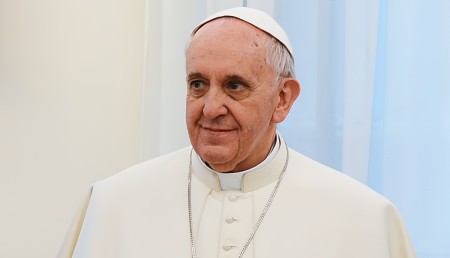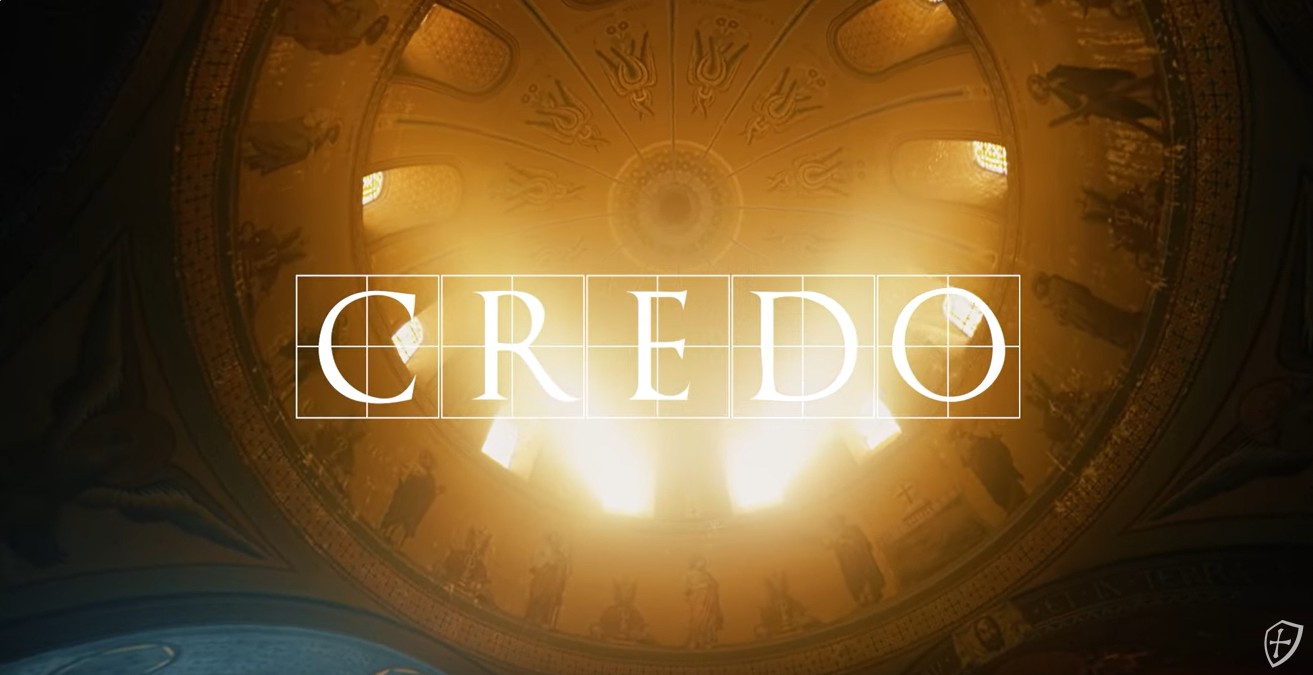 Dear readers, Catholic Online was de-platformed by Shopify for our pro-life beliefs. They shut down our Catholic Online, Catholic Online School, Prayer Candles, and Catholic Online Learning Resources—essential faith tools serving over 1.4 million students and millions of families worldwide. Our founders, now in their 70's, just gave their entire life savings to protect this mission. But fewer than 2% of readers donate. If everyone gave just $5, the cost of a coffee, we could rebuild stronger and keep Catholic education free for all. Stand with us in faith. Thank you. Help Now >
Dear readers, Catholic Online was de-platformed by Shopify for our pro-life beliefs. They shut down our Catholic Online, Catholic Online School, Prayer Candles, and Catholic Online Learning Resources—essential faith tools serving over 1.4 million students and millions of families worldwide. Our founders, now in their 70's, just gave their entire life savings to protect this mission. But fewer than 2% of readers donate. If everyone gave just $5, the cost of a coffee, we could rebuild stronger and keep Catholic education free for all. Stand with us in faith. Thank you. Help Now >
Pope: Following Christ as 'Sons in the Son'
FREE Catholic Classes
To be happy and reach heaven, follow Christ's lead and not Adam's, says Benedict XVI.
Highlights
VATICAN CITY (Zenit.org) - To be happy and reach heaven, follow Christ's lead and not Adam's, says Benedict XVI.In a lesson on Pauline Christology today during the general audience in St. Peter's Square, the Pope explained that Adam's pride ended in his self-destruction, whereas Christ took the opposite route -- that of humility -- and was "greatly exalted" by the Father.
The address was a continuation of a series of reflections the Holy Father has been giving on Paul the Apostle, within the context of the Church's celebration of the Pauline Jubilee Year.He noted that St. Paul's preaching made clear that "the Resurrection is not an event in itself that is separated from the Death. The risen One is the same One who was crucified. The risen One also had his wounds. [...] Paul had understood on the road to Damascus this identification of the risen One with Christ crucified: In that moment, it was revealed with clarity that the Crucified is the risen One and the risen One is the Crucified, who says to Paul, 'Why do you persecute me?'"
Paul's contemplation of this reality leads him to a deep understanding of Christ's "eternal existence in which he is one with the Father," the Pontiff said.He added: "These two dimensions -- the eternal pre-existence with the Father and the descent of the Lord in the incarnation -- are already announced in the Old Testament, in the figure of Wisdom. [...]
"And we already see in the books of the Old Testament that this abasement of Wisdom, its descent into flesh, also implies the possibility of being rejected. St. Paul, developing his Christology, refers precisely to this wisdom perspective: He recognizes in Jesus the eternal Wisdom existing from all time, the Wisdom that descends and creates a tent among us, and thus he can describe Christ as 'the power of God and the wisdom of God.'"
Exalted
Benedict XVI went on to look at a Pauline text that he called "one of the most elevated texts of the New Testament": the hymn in Chapter 2 of the Letter to the Philippians."Exegetes mainly concur in considering that this pericope was composed prior to the text of the Letter to the Philippians," he explained. "This is an important piece of information, because it means that Judeo-Christianity, before St. Paul, believed in the divinity of Jesus. In other words, faith in the divinity of Christ is not a Hellenistic invention, arising after the earthly life of Christ, an invention that, forgetting his humanity, had divinized him. We see in reality that the early Judeo-Christianity believed in the divinity of Jesus."
The Holy Father said the text of the Philippian hymn can be divided into three parts, "which illustrate the principle moments of the journey undertaken by Christ."
He explained: "His pre-existence is expressed with the words: 'though he was in the form of God, [he] did not regard equality with God something to be grasped.' Afterward follows the voluntary abasement of the Son in the second stanza: 'he emptied himself, taking the form of a slave,' 'he humbled himself, becoming obedient to death, even death on a cross.' The third stanza of the hymn announces the response of the Father to the humiliation of the Son: 'Because of this, God greatly exalted him and bestowed on him the name that is above every name.'"
"What is impressive," the Pontiff said, "is the contrast between the radical abasement and the resulting glorification in the glory of God. It is evident that this second stanza contrasts with the pretension of Adam, who wanted to make himself God, and it contrasts as well with the actions of the builders of the Tower of Babel, who wanted to construct for themselves a bridge to heaven and make themselves divine. But this initiative of pride ended with self-destruction: In this way, one doesn't arrive to heaven, to true happiness, to God.
"The gesture of the Son of God is exactly the contrary: not pride, but humility, which is the fulfillment of love, and love is divine. The initiative of abasement, of the radical humility of Christ, which contrasts with human pride, is really the expression of divine love; from it follows this elevation to heaven to which God attracts us with his love."
Like him
The Bishop of Rome concluded with another point of Pauline Christology: Christ as the firstborn who invites us to be like him.The word "firstborn," from Colossians "implies that the first among many children, the first among many brothers and sisters, has lowered to draw us and make us brothers and sisters," he explained.
And "in the Letter to the Ephesians, we find the beautiful exposition of the divine plan of salvation, when Paul says that in Christ, God wanted to recapitulate all things. Christ is the recapitulation of everything, he takes up everything and guides us to God. And thus is implied a movement of descent and ascent, inviting us to participate in his humility, that is, in his love for neighbor, so as to thus be participants in his glorification, making ourselves with him into sons in the Son."
"Let us pray," the Pope concluded, "that the Lord helps us to conform ourselves to his humility, to his love, to thus be participants in his divinization."
Join the Movement
When you sign up below, you don't just join an email list - you're joining an entire movement for Free world class Catholic education.

-

-
Mysteries of the Rosary
-
St. Faustina Kowalska
-
Litany of the Blessed Virgin Mary
-
Saint of the Day for Wednesday, Oct 4th, 2023
-
Popular Saints
-
St. Francis of Assisi
-
Bible
-
Female / Women Saints
-
7 Morning Prayers you need to get your day started with God
-
Litany of the Blessed Virgin Mary
Pope Francis Suffers Fall: A Look at Papal Health and Succession
-

The Erosion of Civility in Congressional Hearings: A Call for Professional Decorum
-

Bishop Strickland and Others Defend Apostolic Tradition in New Documentary on the Church's Enduring ...
-
At Least 25 Dead as Wildfires Continue to Rage Across Los Angeles, Arson Investigations Underway
-
Australian Woman Charged with Torture After Exploiting Child for Donations
Daily Catholic
 Daily Readings for Friday, January 17, 2025
Daily Readings for Friday, January 17, 2025 St. Anthony the Abbot: Saint of the Day for Friday, January 17, 2025
St. Anthony the Abbot: Saint of the Day for Friday, January 17, 2025 Prayer for a Blessing on the New Year: Prayer of the Day for Tuesday, December 31, 2024
Prayer for a Blessing on the New Year: Prayer of the Day for Tuesday, December 31, 2024- Daily Readings for Thursday, January 16, 2025
- St. Fursey: Saint of the Day for Thursday, January 16, 2025
- St. Theresa of the Child Jesus: Prayer of the Day for Monday, December 30, 2024
![]()
Copyright 2024 Catholic Online. All materials contained on this site, whether written, audible or visual are the exclusive property of Catholic Online and are protected under U.S. and International copyright laws, © Copyright 2024 Catholic Online. Any unauthorized use, without prior written consent of Catholic Online is strictly forbidden and prohibited.
Catholic Online is a Project of Your Catholic Voice Foundation, a Not-for-Profit Corporation. Your Catholic Voice Foundation has been granted a recognition of tax exemption under Section 501(c)(3) of the Internal Revenue Code. Federal Tax Identification Number: 81-0596847. Your gift is tax-deductible as allowed by law.







 Daily Readings for Friday, January 17, 2025
Daily Readings for Friday, January 17, 2025 St. Anthony the Abbot: Saint of the Day for Friday, January 17, 2025
St. Anthony the Abbot: Saint of the Day for Friday, January 17, 2025 Prayer for a Blessing on the New Year: Prayer of the Day for Tuesday, December 31, 2024
Prayer for a Blessing on the New Year: Prayer of the Day for Tuesday, December 31, 2024

